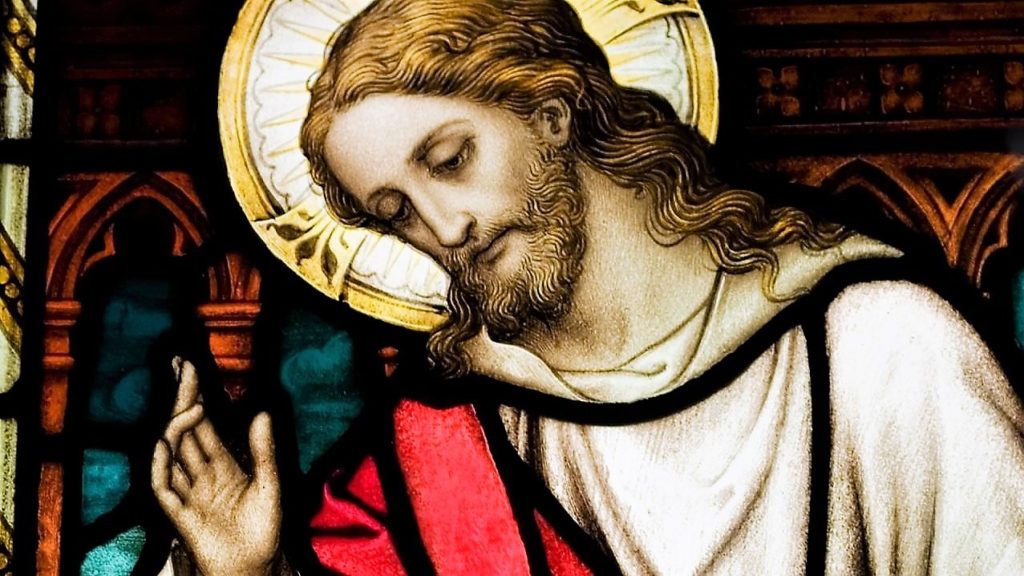POPE FRANCIS ON THE 3RD SUNDAY IN ORDINARY TIME YEAR C.

ANGELUS
Saint Peter’s Square
Sunday, 23 January 2022
_________________________
Dear brothers and sisters, buongiorno!
In the Gospel of today’s liturgy, we see Jesus beginning his preaching (cf. Lk 4:14-21): it is Jesus’ first sermon. He goes to Nazareth, where he grew up, and participates in prayer in the synagogue. He gets up to read and, in the scroll of the prophet Isaiah, he finds the passage regarding the Messiah, who proclaims a message of consolation and liberation for the poor and oppressed (cf. Is 61:1-2). At the end of the reading, “the eyes of all… were fixed on him” (v. 20). And Jesus begins by saying: “Today this scripture has been fulfilled” (v. 21). Let us dwell on this today. It is the first word of Jesus’ preaching recorded in the Gospel of Luke. Pronounced by the Lord, it indicates a “today” that runs through all ages and always remains valid. The Word of God is always “today”. It begins with a “today”: when you read the Word of God, a “today” begins in your soul, if you understand it well. Today. Isaiah’s prophecy dates back centuries, but Jesus, “in the power of the Spirit” (v. 14), makes it relevant and, above all, brings it to fulfilment, and shows how to receive the Word of God: today. It is not like ancient history, no: today. Today, it speaks to your heart.
Jesus’ fellow countrymen are struck by his word. Although, clouded by prejudice, they do not believe him, they realize that his teaching is different from that of the other teachers (cf. v. 22): they sense that there is more to Jesus. What is there? There is the anointing of the Holy Spirit. Sometimes it happens that our sermons and our teachings remain generic, abstract; they do not touch the soul and the life of the people. And why? Because they lack the power of this today; what Jesus “fills with meaning” by the power of the Spirit, is today. Today is speaking to you. Yes, at times one hears impeccable conferences, well-constructed speeches, but they do not move the heart and so everything remains as before. Even many homilies – I say it with respect but with pain – are abstract, and instead of awakening the soul, they put it to sleep. When the faithful start looking at their watches – “when is this going to end?” – they put the soul to sleep. Preaching runs this risk: without the anointing of the Spirit, it impoverishes the Word of God, and descends to moralism and abstract concepts; it presents the Gospel with detachment, as if it were outside time, far from reality. And this is not the way. But a word in which the power of today does not pulsate is not worthy of Jesus and does not help people’s lives. That is why those who preach, please, are the first to experience the today of Jesus, so as to be able to communicate it in the today of others. And if they want to give lectures, conferences, let them do so, but elsewhere, not at the time of the homily, where they must give the Word in a way that rouses hearts.
Dear brothers and sisters, on this Sunday of the Word of God I would like to thank the preachers and proclaimers of the Gospel who remain faithful to the Word that rouses the heart, who remain faithful to “today”. Let us pray for them, that they may live the today of Jesus, the sweet power of his Spirit that makes the Scriptures come alive. The Word of God, is indeed alive and effective (cf. Heb 4:12); it changes us, it enters into our affairs, it illuminates our daily lives, it comforts and brings order. Remember: the Word of God transforms an ordinary day into the today in which God speaks to us. So, let us pick up the Gospel and choose each day a small passage to read and re-read. Keep the Gospel in your pocket or your bag, to read it on your travels, at any moment, and read it calmly. In time we will discover that these words are made especially for us, for our life. They will help us to welcome each day with a better, more serene outlook, because when the Gospel enters into today’s world, it fills it with God. I would like to make a suggestion. On the Sundays of this liturgical year the Gospel of Luke, the Gospel of mercy, is proclaimed. Why not also read it personally, all of it, one small passage each day? A short passage. Let us familiarize ourselves with the Gospel, it will bring us the newness and joy of God!
The Word of God is also the beacon that guides the synodal journey that has begun throughout the Church. As we strive to listen to each other, with attention and discernment – because it is not a question of opinion, no, but of discerning the Word, there – let us listen together to the Word of God and the Holy Spirit. And may Our Lady obtain for us the constancy to nourish ourselves with the Gospel every day.
Source: https://www.vatican.va/content/francesco/en/angelus/2022/documents/20220123-angelus.html
Emphasis mine.

ANGELUS
Saint Peter’s Square
Sunday, 24 January 2016
Dear Brothers and Sisters, Good morning!
In today’s Gospel, before presenting Jesus’ programmatic speech in Nazareth, Luke the Evangelist briefly recounts the work of evangelization. It is an activity that Jesus carries out with the power of the Holy Spirit: his Word is original because it reveals the meaning of the Scriptures; it is an authoritative Word because he commands even impure spirits with authority, and they obey him (cf. Mk 1:27). Jesus is different from the teachers of his time. For example, he doesn’t open a law school but rather goes around preaching and teaching everywhere: in the synagogues, on the streets, in houses, always moving about! Jesus is also different from John the Baptist, who proclaims God’s imminent judgment. Instead Jesus announces God’s fatherly forgiveness.
Now let us imagine that we too enter the synagogue of Nazareth, the village where Jesus has grown up, until he is about 30 years old. What happens is an important event, which delineates Jesus’ mission. He stands up to read the Sacred Scripture. He opens the scroll of the Prophet Isaiah and takes up the passage where it is written: “The Spirit of the Lord is upon me, because he has anointed me to preach good news to the poor” (Lk 4:18). Then, after a moment of silence filled with expectation on the part of everyone, he says, in the midst of their general amazement: “Today this scripture has been fulfilled in your hearing” (v. 21).
Evangelizing the poor: this is Jesus’ mission. According to what he says, this is also the mission of the Church, and of every person baptized in the Church. Being a Christian is the same thing as being a missionary. Proclaiming the Gospel with one’s word, and even before, with one’s life, is the primary aim of the Christian community and of each of its members. It is noted here that Jesus addresses the Good News to all, excluding no one, indeed favouring those who are distant, suffering sick, cast out by society.
Let us ask ourselves: what does it mean to evangelize the poor? It means first of all drawing close to them, it means having the joy of serving them, of freeing them from their oppression, and all of this in the name of and with the Spirit of Christ, because he is the Gospel of God, he is the Mercy of God, he is the liberation of God, he is the One who became poor so as to enrich us with his poverty. The text of Isaiah, reinforced with little adaptations introduced by Jesus, indicates that the messianic announcement of the Kingdom of God come among us is addressed in a preferential way to the marginalized, to captives, to the oppressed.
In Jesus’ time these people probably were not at the centre of the community of faith. Let us ask ourselves: today, in our parish communities, in our associations, in our movements, are we faithful to Christ’s plan? Is the priority evangelizing the poor, bringing them the joyful Good News? Pay heed: it does not only involve doing social assistance, much less political activity. It involves offering the strength of the Gospel of God, who converts hearts, heals wounds, transforms human and social relationships according to the logic of love. The poor are indeed at the centre of the Gospel.
May the Virgin Mary, Mother of evangelizers, help us to strongly perceive the hunger and thirst for the Gospel that there is in the world, especially in the hearts and the flesh of the poor. May she enable each of us and every Christian community to tangibly bear witness to the mercy, the great mercy that Christ has given us.
EMPHASIS MINE.
Stay updated: subscribe by email for free TO OUR NEW WEBSITE www.catholicsstrivingforholiness.org (PUT YOUR EMAIL IN THE SUBSCRIBE WIDGET).
We are also in www.fb.com/Catholicsstrivingforholiness. Kindly help more people in their Christian life by liking our page and inviting your family, friends and relatives to do so as well. Thanks in advance and God bless you and your loved ones! Fr. Rolly Arjonillo